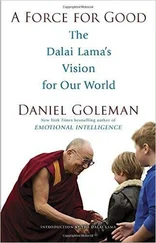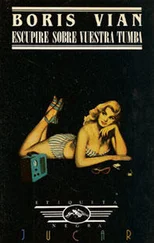A POSITIVE HERO
Miksha (Jet’s call him that for now) could sew on a button in ten seconds. Light а match and hold it between your fingers; between the time you light it and the time it burns your fingers, Miksha would have sewn a button on an officer's uniform. Reb Mendel, for whom Miksha worked as an apprentice, couldn't believe his eyes. He adjusted his glasses, took out a match, and said in Yiddish, "Come on, do it again, Herr Micksat." Reb Mendel smiled as he watched Miksha thread the needle again. Then suddenly he threw the match out the window and spat on his fingers. Miksha, who had already sewn the button on Herr Antonescus uniform, said triumphantly, "Reb Mendel, one single match could blow up all the oil fields of Ploesti," While he imagined the distant future illuminated by a huge blaze, Reb Mendel, with two fingers still damp, quickly pulled at the button on the uniform and twisted it as if it were the neck of a chicken. "Herr Micksat," he said, "if you didn't have such foolish thoughts, you could become an excellent craftsman. Do you know that the oil fields of Ploesti are estimated to have several million gallons of crude oil?" "It'll be a wonderful flame, Reb Mendel,” said Miksha enigmatically.
THE OUTWITTING OF REB MENDEL
Miksha didn’t become a master craftsman. For two more years he sewed on buttons at Reb Mendel's, listening to his Talmudic reasonings, and then was forced to leave, sent off with a curse. One day in the spring of the notable year 1925, Reb Mendel complained that one of his Cochin hens had disappeared. "Reb Mendel," said Miksha, "look for the thief among the Jews." Reb Mendel understood the force of the insult and for some time didn't mention his Cochin hen, Miksha was also silent; he was waiting for Reb Mendel to conquer his pride. The old man struggled within himself, each day sacrificing a hen on the altar of his Talmudic haughtiness. With a stick in his hand, he kept vigil in the chicken coop until dawn, frightening away a skunk by barking like a dog. At dawn he fell asleep, and another hen disappeared from the chicken coop. "Let the great Righteous One smite me, He who said that all living creatures are equally worthy of His care and mercy,” said Reb Mendel on the ninth day, "Is it possible that one Cochin hen worth at least five chevronets is equal to a skunk who robs the poor and stinks far and wide?” “It isn't, Reb Mendel", said Miksha. "A Cochin hen worth at least five chevronets can't be compared with a stinking skunk.” He said no more. He waited for the skunk to destroy what it could destroy, and to prove to Reb Mendel that his Talmudic prattle about the equality of all God's creatures was worthless until justice was achieved on earth by earthly means. On the eleventh day Reb Mendel, exhausted by futile vigils, swollen and red-eyed, his hair full of feathers, stood in front of Miksha and began to beat his breast. "Herr Micksat, help me!" "All right, Reb Mendel," said Miksha. “Brush off your caftan and take the feathers out of your hair. Leave this matter to me."
THE TRAP
The trap that Miksha slapped together was a distant replica of those his grandfather used to make long ago in Bukovina: a murky and nostalgic memory. Apart from this, it was a simple box made of hard beech planks, with a lid that opened from the outside but not from the inside. As bait be placed an egg that (as he had made absolutely certain) already held a Cochin chicken, rotting as if in a coffin. In the morning, as soon as he stepped into the back yard, Miksha knew the animal was in the trap: the stench carried as far as the gate. Reb Mendel, however, was nowhere in sight. Worn out by his long vigils, he had yielded to sleep and to fate. With his heavy peasant hand, Miksha patted Reb Mendel's one remaining hen, which was petrified with fear, and let it into the back yard. Then he raised the lid, which had teeth of bent nails, and in the split second the animal’s moist muzzle appeared through the crack, he slammed the lid down with his fist No less skillfully, he pushed a rusty wire through the skunk’s nostrils, tied its paws, and hung the animal on the doorpost. An awful stench. He made one slit around the neck, like a crimson necklace, then two more at the base of the paws. Peeling back the skin around the neck, he made two more slits, like buttonholes, for his fingers.
Awakened by the terrifying shrieks of the animal or by a nightmare, Reb Mendel suddenly appeared. Holding his nose with the skirt of his wrinkled caftan, he stared with bloodshot, bonified eyes at the live, bloody ball suspended on a wire and writhing on the doorpost. After wiping his knife on the grass, Miksha stood up and said, "Reb Mendel, I have released you from skunks once and for all ”. When Reb Mendel finally spoke, his voice sounded hoarse and terrible, like the voice of a prophet: "Wash the blood off your hands and face. And be damned, Herr Micksat!"
THE CONSEQUENCES
Miksha soon experienced on his own hide the meaning of Reb Mendel's curse, for the master craftsmen of the entire district of Antonovka sought recommendations for their apprentices from no one but Reb Mendel. At the mention of Miksha's name, the Jew would rave in Yiddish and Hebrew alternately, beating his breast and pulling his hair as if someone had mentioned a dybbuk. Not even Reb Jusef, the worst craftsman, and not only among tailors, would keep him. Learning of Reb Mendel's curse, he fired Miksha after only two days. In return, Miksha solemnly swore that one day he would revenge himself for the injury the Talmudists had inflicted on him.
AIMICKE
The same year, Miksha became acquainted with a certain Aimicke, E. V, Aimicke, who introduced himself as a law student. This Aimicke had previously worked for the Digtaryev firm as a warehouse foreman, but he had been fired, or so he claimed, because of his illegal activities. Miksha and Aimicke, united by the same hate, tried to earn their livelihood by helping our in the hunts Count Bagaryan organized in the neighboring countryside, in which Antonovka's lumpen-proletariat served as a substitute for dogs. Sitting in the heavy shade of elm trees, listening to the distant call of hunting horns and the nervous barking of hounds, Aimicke talked to Miksha about a future without hounds, nobility, and hunting horns. When the triumphant call was sounded, Miksha barely had time to run to the place where the blood of the wild boar was flowing, and where the nobility, accompanied by the hellish yelping of the dogs, toasted one another, using curved, silver-rimmed horns, which had to be emptied at a single draught. At a secret meeting in the cellar of a house in the suburb of Antouovka, that same Aimicke (who after two months was working again in the warehouse of the Digtaryev firm) accepted Miksha into his organization. At the same time, he demanded that Miksha find work again, lest the revolutionary blade In him become dull.
Luck was with Miksha. One August afternoon, while he was lying at the edge of a ditch near the post road bordering Antonovka, Herr Baltescu passed by in his carriage. “Is it true," he asked, "that you flayed a live skunk and turned his skin inside out like a glove?" "It's true," answered Miksha; "although it's none of your business, Herr Baltescu," "Starting tomorrow you can work for me", said Herr Baltescu, not at ail ruffled by Miksha's arrogance. "But you should know," he shouted to him, "my Iambs are Astrakhan.” “Anyone who can flay a live skunk knows how to turn an Astrakhan’s skin inside out without making a slit for the thumbs", Miksha shouted after him self-confidently.
THE ASSIGNMENT
At the end of September, Miksha was returning on his bicycle from the estate of Herr Baltescu, the fur merchant of Antonovka. Over the forest rose a red cloud, anticipating the autumn winds. Along the way Aimicke, on his own shiny bicycle, joined him, and for a while rode alongside without saying a word. Then he set up a meeting with Miksha for the following evening, and abruptly turned into a side street, Miksha arrived at the appointed hour and gave the agreed-upon signal. Aimicke opened the door but did not turn on the light. "I'll be brief", he said. "I set up a meeting with each of the members at a different time and place. The police agents showed up at only one of these places.” He paused. “At Bagatyan's mill,” he finally said. Miksha was silent. He waited to hear the traitor's name. "You don't ask", said Aimicke, "who I was going to meet at Bagaryan's mill.” “Whoever it is”, said Miksha laconically, "I wouldn't like to be in his skin.”
Читать дальше









